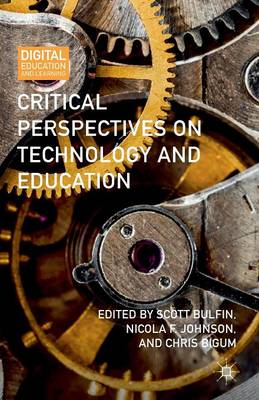Digital Education and Learning
1 total work
Critical Perspectives on Technology and Education
by Scott Bulfin, Nicola F. Johnson, and Chris Bigum
Published 11 February 2015
This book offers critical readings of issues in education and technology and demonstrates how researchers can use critical perspectives from sociology, digital media, cultural studies, and other fields to broaden the "ed-tech" research imagination, open up new topics, ask new questions, develop theory, and articulate an agenda for informed action.
